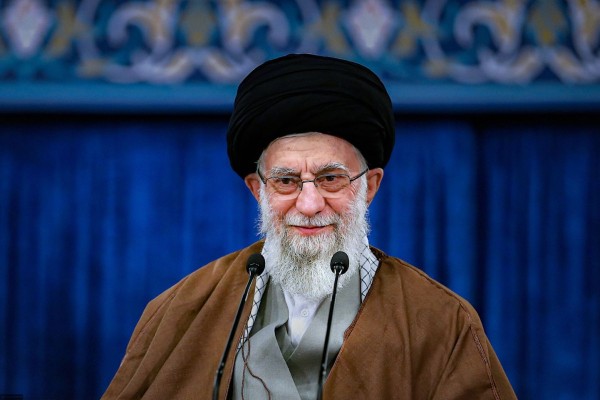French Ships Could Mean Geopolitical Disaster
Khatuna Mshvidobadze*
Some in the French government want to sell Mistral-class ships to Russia, and the decrepit Russian Navy is eager to buy. But such advanced land attack capabilities in Russian hands will worsen the already tense security situation in the Black and Baltic seas and may even threaten Russia's Arctic neighbors.
During an Oct. 1 visit to Moscow, French Foreign Minister Bernard Kouchner said he looked forward to Russian acquisition of "this marvelous ship."
On the Russian side, Vice Adm. Oleg Burtsev, first deputy chief of the Russian Navy Staff, said Nov. 2, "We plan to buy one Mistral-class ship in France and with technical support from the French to build four helicopter carriers of this class under license."
Mistral-class ships pack an impressive power-projection capability: up to 900 naval infantry; four amphibious landing craft; 16 to 35 helicopters, depending on the type; and a mix of armored vehicles, including up to 40 tanks. Mistrals would give Russia unprecedented naval land attack capabilities.
Negotiations continue. Maybe the Russians want more technology than France wants to transfer. Maybe the French want more money than Russia wants to pay. Following a Nov. 27 Paris meeting with Russian Prime Minister Vladimir Putin, French Prime Minister Francois Fillon said simply, "I confirm that we are currently examining an official request from the Russian government for the purchase of a ship of this class."
Or perhaps French proponents of the sale are feeling the domestic and international pressure against what would be the biggest military transfer from a NATO country to Russia since World War II.
"By providing Putin with the means for rapid invasion of Georgia, Crimea, even the Baltic countries," wrote French philosopher André Glucksmann in Le Monde, "our message is clear: Go ahead!"
Russian Navy Commander Adm. Vladimir Vysotskiy takes the point.
"In the conflict in August last year against Georgia, a ship like that would have allowed our fleet to accomplish its mission in 40 minutes, not 26 hours, which is how long it took us," he said.,
Mistral-class ships in the Black Sea would threaten Georgia, but also Western access to Eurasia via the East-West corridor between the Black Sea and the Caspian Sea; Ukrainian sovereignty, particularly over the Crimean Peninsula, where Moscow wants to hang on to its leased Black Sea Fleet headquarters at Sevastopol; and the viability of American forward operating bases in Bulgaria and Romania.
Similarly, the Baltic countries, bracketed since late summer by Russian and Belarusan forces in exercises Ladoga 2009 and Zapad 2009, fully understand the impact that a handful of Mistrals would have upon their security.
"We should consider security measures to be taken in case the Navy is deployed in the Baltic Sea," Estonian Defense Force Commander Ants Laaneots told Estonian television Nov. 21.
If France sells Mistrals to Russia, some allies will call upon NATO for enhanced plans, exercises and naval presence in the Black and Baltic seas to counter a capability provided by another ally. That should concern every NATO navy.
To underscore the point, as Putin visited Paris, the Russian Navy announced that all naval infantry units will be fully equipped with advanced weaponry by 2015.
Moreover, there may be adverse geopolitical consequences beyond the Black and Baltic seas.
"Due to competition for resources," says the Russian National Security Strategy published last March, "a military confrontation cannot be excluded. ... Consequently, Russia will deploy sea and land forces along the Arctic frontiers."
Global warming is rapidly opening the Arctic Ocean to resource exploitation and the Northeast and Northwest passages to seasonal navigation. Consequently, naval operations of all interested countries will extend northward and the importance of northern littoral installations will increase.
Without understating the difficulty of operating in northern seas, a littoral combat capability in the hands of the only country that seriously exercises naval presence in those waters must also not be underestimated.
Sale of a modern weapon system such as Mistral cannot be viewed as an economic or industrial decision to boost the fortunes of French shipyards, nor can it be viewed as a diplomatic move to enhance some kind of Franco-Russian partnership.
"By signing the sales contract for Mistral ships," wrote Glucksmann, [French President] "Nicolas Sarkozy would paralyze his own diplomacy."
Though some in Paris may find it convenient to look away, Russia wants the Mistrals for geopolitical purposes of which most French citizens would not approve and that frighten many of France's NATO allies. As Glucksmann wrote, "It is never too late to block a silly half-baked idea." ■
*Khatuna Mshvidobadze, is a senior associate at the Georgian Security Analysis Center, Tbilisi.
Published: 7 December 2009
http://www.defensenews.com/sto...
Don't Sell Russia Mistrals
Arvamus
TRENDING
























